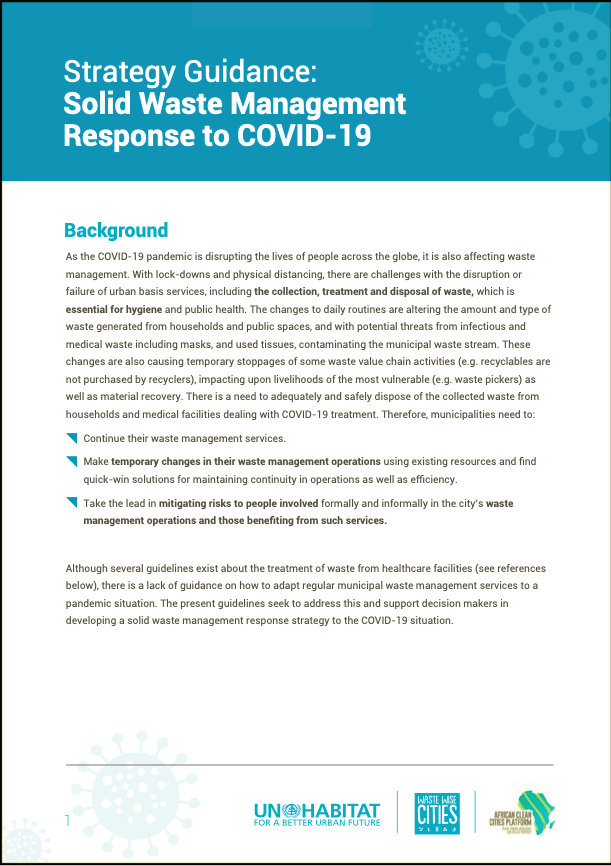As the COVID-19 pandemic is disrupting the lives of people across the globe, it is also affecting waste management. With lock-downs and physical distancing, there are challenges with the disruption or failure of urban basis services, including the collection, treatment and disposal of waste, which is essential for hygiene and public health. The changes to daily routines are altering the amount and type of waste generated from households and public spaces, and with potential threats from infectious and medical waste including masks, and used tissues, contaminating the municipal waste stream. These changes are also causing temporary stoppages of some waste value chain activities (e.g. recyclables are not purchased by recyclers), impacting upon livelihoods of the most vulnerable (e.g. waste pickers) as well as material recovery. There is a need to adequately and safely dispose of the collected waste from households and medical facilities dealing with COVID-19 treatment. Therefore, municipalities need to:
- Continue their waste management services.
- Make temporary changes in their waste management operations using existing resources and find quick-win solutions for maintaining continuity in operations as well as efficiency.
- Take the lead in mitigating risks to people involved formally and informally in the city’s waste management operations and those benefiting from such services.
Although several guidelines exist about the treatment of waste from healthcare facilities, there is a lack of guidance on how to adapt regular municipal waste management services to a pandemic situation. The present guidelines seek to address this and support decision makers in developing a solid waste management response strategy to the COVID-19 situation.

